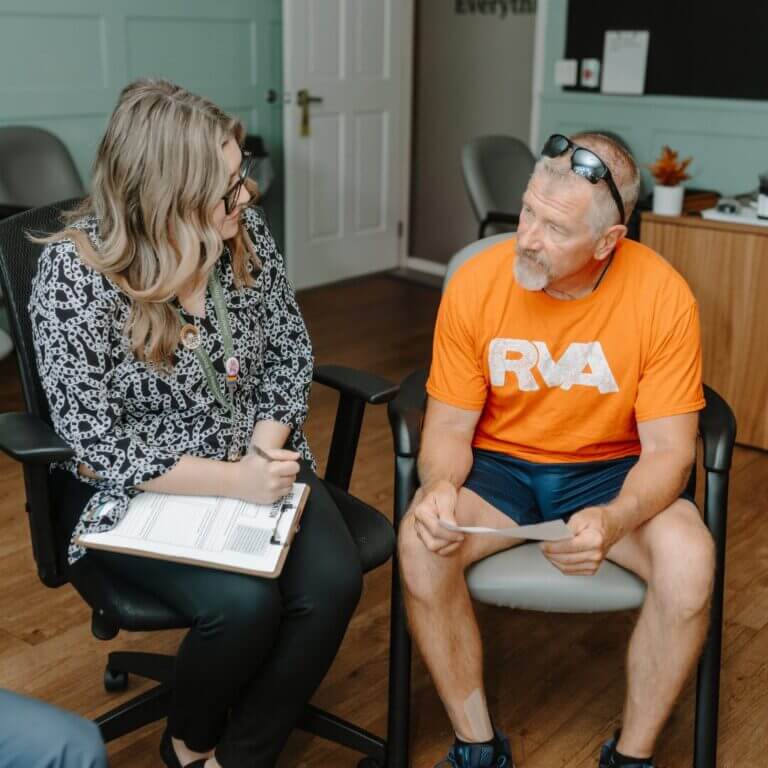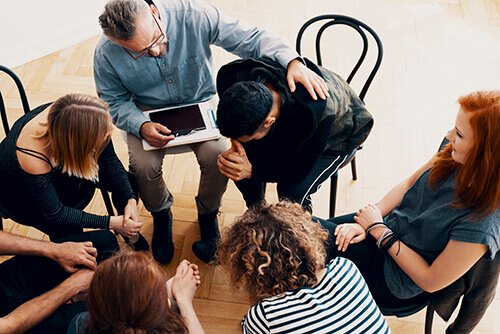The relationships we build in treatment and later in recovery can become some of the most cherished ones we have ever had. Often we are brought closer to our truest selves and can experience safety and acceptance while being vulnerable as we identify closely with those we connect to. As we navigate life’s challenges with these friends made in recovery, not all of those we have connected to will continue down the same trajectory. It can be difficult to know how to navigate these changes in the lives of our friends while keeping recovery and boundaries intact and it’s important to keep in mind what bonds you together as you do.
There are many reasons why the nature of a friendship changes, and this is not exclusive to friendships we’ve made in recovery programs. However, the reasons that friendships made with others in recovery can be unique. Relapse, behavioral changes, and unhealthy behaviors in a person can significantly shift the nature of our connections to them. We aim to lend support and provide comfort when our friends are struggling, but it can be difficult to maintain when those friends do not work towards growth. It can be a difficult balance to love people unconditionally when they step away from the life treatment and recovery has given them. We may feel that we ourselves are now in the role our own friends and families were with us before we made the choice to change our lives.
Separation Anxiety
What can make already complicated choices about our friendships more difficult is the strength of the bond we feel with those we have experienced treatment with and those we connected with through the continued recovery process. We form intense bonds with the people we share these kinds of experiences with and they are often some of the first people we have felt truly seen and understood by. If the time comes that a hard boundary has to be set we must distance or even totally terminate a friendship it can feel much more difficult and even traumatic to do so. There is a form of intimacy established through sharing something such as recovery that can be painful to let go of and it may cause some to shy away from making these challenging decisions.
Set a Boundary, Take a Step Away, or Call it Quits
Just because a friend in recovery exhibits changes in their behavior does not mean the relationship needs to end, in fact they may need us more than ever. The thing to bear in mind is whether or not you are suited and up to the task of being part of that support system. When possible, of course, we want to lend out love and support to our friends who are struggling, but we must also be cautious of where we are at in our own journey and practice an honest appraisal of how this may cause harm in our lives. As many of us are trying to build new behaviors ourselves, it can be hard to know when a situation needs this type of action and when we should seek out trusted resources for advice, perhaps that of a therapist, a mentor, or a friend who has been through a similar situation.
There may be times where the action of setting a boundary is what is needed in order to get a friendship back on the right track. While what requires boundaries is different and personal for everyone, some situations that may look like this include:
- A friend engaging in gossip about others that you also have close relationships with. It may be time for a firm boundary to let them know that you do not wish to engage in this behavior and don’t wish for them to participate in it around you.
- A friend who asks to borrow money or other types of assistance regularly. Perhaps setting a boundary feels hard in a situation like this one if you have lent money or assistance in the past, however, you have the right to make a firm decision that it cannot continue in the future.
- A friend that makes you feel guilty for spending time with others you have relationships with. Having clear boundaries around your time and energy with your friends can be healthy and beneficial.
There may be other situations where you find that the best course of action is simply to distance yourself from the relationship without choosing to actually cut ties. This can be something that actually grows the strength of the bond between two people as time apart can give us a greater sense of appreciation for one another. For those in recovery, this may be necessary if someone chooses to step away from a program of recovery, or believes they want to use substances again. While there is no way to know if this is the right choice for someone else, you can decide if close contact with a person in this situation is right for you. If someone is struggling and requiring so much time and attention that you feel it puts an emotional weight on you, distance is healthy and safe. In some of these situations, it might be a decision you’ll make to walk away from the friendship. Losing a friend is a difficult emotional process and if you find yourself feeling that this is the best decision, lean into a support group during this time. Always remember to care for yourself and your recovery first.
Our friendships and support networks are invaluable resources to us in recovery and they give us strength and hope when we need it most. It’s okay to remember the place and reasons these friendships grew as you navigate life circumstances. Take time to choose your friendships with care as they can be an enriching part of your recovery.
Ashley Addiction Treatment is an innovative treatment program located on Maryland’s Chesapeake Bay. Ashley provides support for professionals seeking help with addiction. We are able to help people with co-occurring disorders and offer confidential treatment programs to meet your needs. Please reach out to us today at 800-799-4673.




